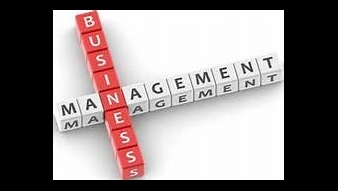
Definition of Business Management
Is a set of activities that are linked to each other in order to effectively control all functions of the company. Business management is also defined as the processes that are applied in order to activate the interaction with people and objects within the work environment, which leads to the achievement of the objectives required successfully. Other definitions of business management are actions and methods aimed at directing individuals, business and private business
Management History
Business management is relatively modern science, unlike the general administration, which is one of the old concepts because it relied on the existence of power in the hands of people. When an individual has the power to control other individuals, he or she applies management based on personal skills or work experience. Until the early 1800's, the administration remained a group of ideas and functions that were applied without precise administrative approaches or based on studies and scientific research until American thinker and businessman Frederick Taylor developed and contributed to the establishment of a management curriculum.
When the idea of business administration emerged as a modern administrative science was based on a set of principles, foundations and scientific theories that contributed to the promotion of technical and practical application of management in the business sector; by controlling the functional behavior and factors affecting the work environment and the requirements of professional development at the present time, Business management to study the political and economic conditions affecting the nature of business in a society; especially with the increase in the volume of production and the development of services provided by different business sectors.
management jobs
Management in general and business management in particular rely on four main functions:
Planning: is to set goals, build appropriate strategies and plans to achieve them in order to reach decision-making, or introduce something new in the final stages of application of various administrative functions and processes. Organization and coordination: Functions aimed at establishing the appropriate rules and determining the tasks and responsibilities to be undertaken, in accordance with specific and specific steps, and thus ensuring their coordination using administrative methods that help to distribute these tasks to the appropriate persons in the work environment.
Leadership and guidance: It is the application of means that aim at influencing employees in a positive way by motivating them to carry out the tasks required of them, and communicating and interacting with them, either through training or assisting them in accomplishing their jobs, and also directing them in the proper ways that contribute to Achieving the required goals efficiently.
Control and control: It is a continuous follow-up of the work of the employees by looking at the special results in the work, comparing what has been achieved and what has already been planned, and still needs to provide the tools and the time to start the actual implementation. And then rectify them within their own policies.
Responsibilities of management
The Department has a set of responsibilities that must be applied within the work environment, be it an institution, a company, or any other field of work.
Ensuring that all the specific objectives and strategies in the establishment are implemented within the time period proposed in the work plan. Oversee all financial activities, follow-up budget and accounting lists, to apply control over financial transactions, whether based on payment of expenses or access to miscellaneous income.
Management of special operations in production, especially in industrial companies that depend on a range of production processes and contribute to achieve their goals. Activate the role of innovation in the work environment, which contributes to the emergence of new goods, services or technologies that help to develop the institution and attract more customers. To activate the role of consultations and meetings between the Department and the heads of departments and sub-managers, thus contributing to the exchange of ideas and useful ideas. Participate in negotiations, contract agreements, contracts between private management in the institution, and other institutional departments. Approve the appointment of project supervisors, department heads, and sub-managers, accept resignations, and implement their administrative requirements. Monitor the work performance index; follow through reports, financial statements, and other documents that provide an assessment of your situation in the organization.
Operational Operations
Prior to the implementation of the work, the Department is keen to implement several operational management processes, including:
Performance: The principles that management must formulate at the beginning of formal work, and over time become necessary, and which all employees are keen to implement, especially in changing professional circumstances that require proper maintenance of functions. Achievement to achieve a goal. Records and reports: Documents are written or electronic, including information about data used in decision management, employee follow-up, and special activities in the organization.
Information processing: is the means to help study information, and include three main types:
Private information in the organization, including all information from its establishment until the current working day. Relevant information in the work of the organization, which includes any internal information directly related to the work. The relevant information is external, which information is
2017-11-04